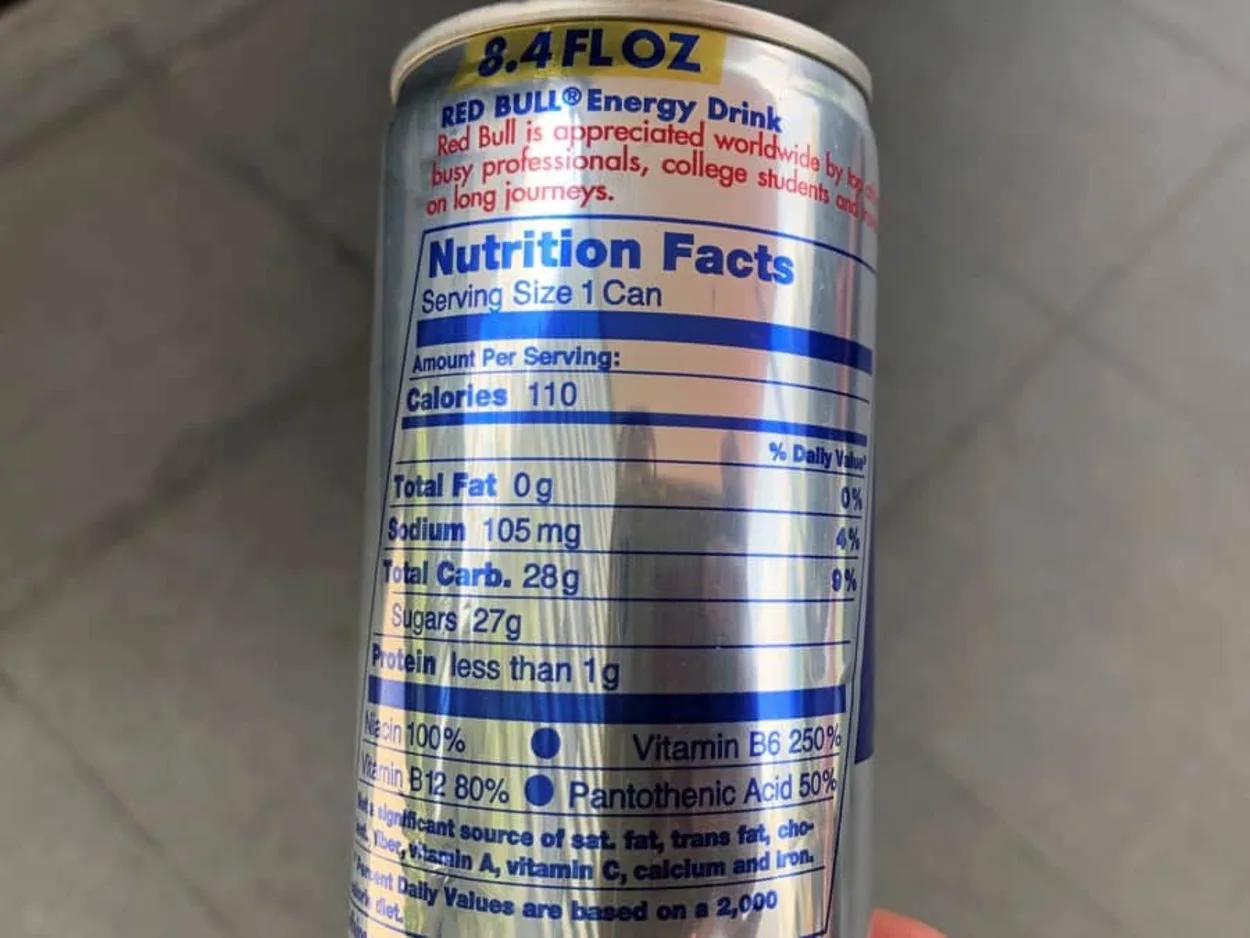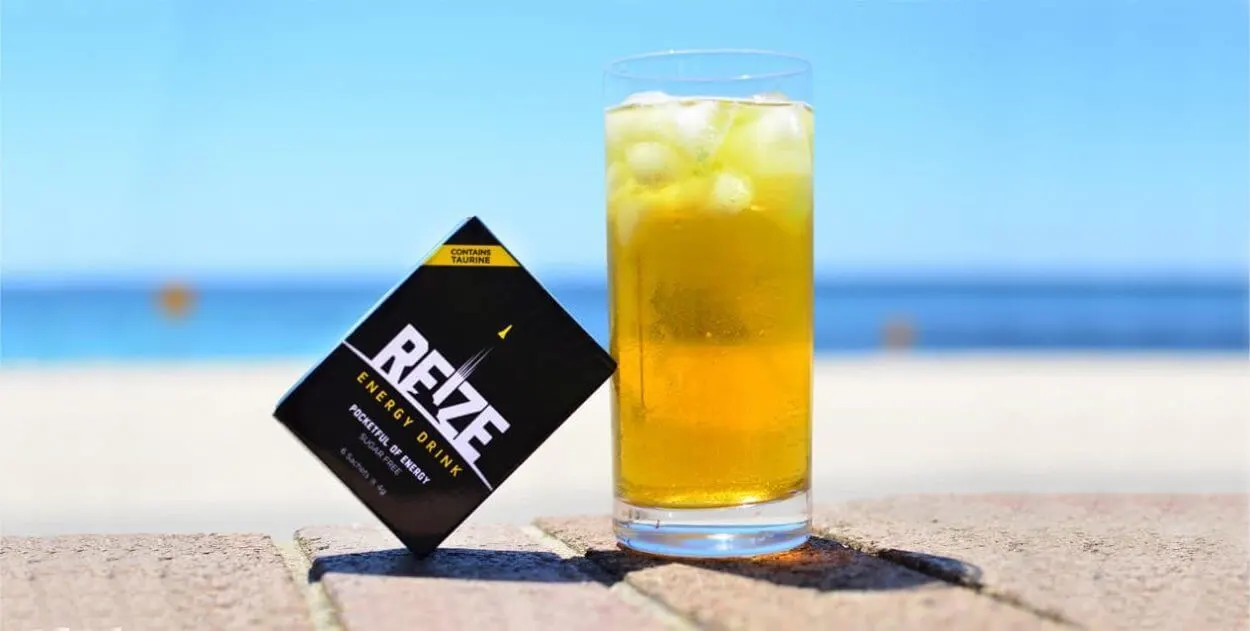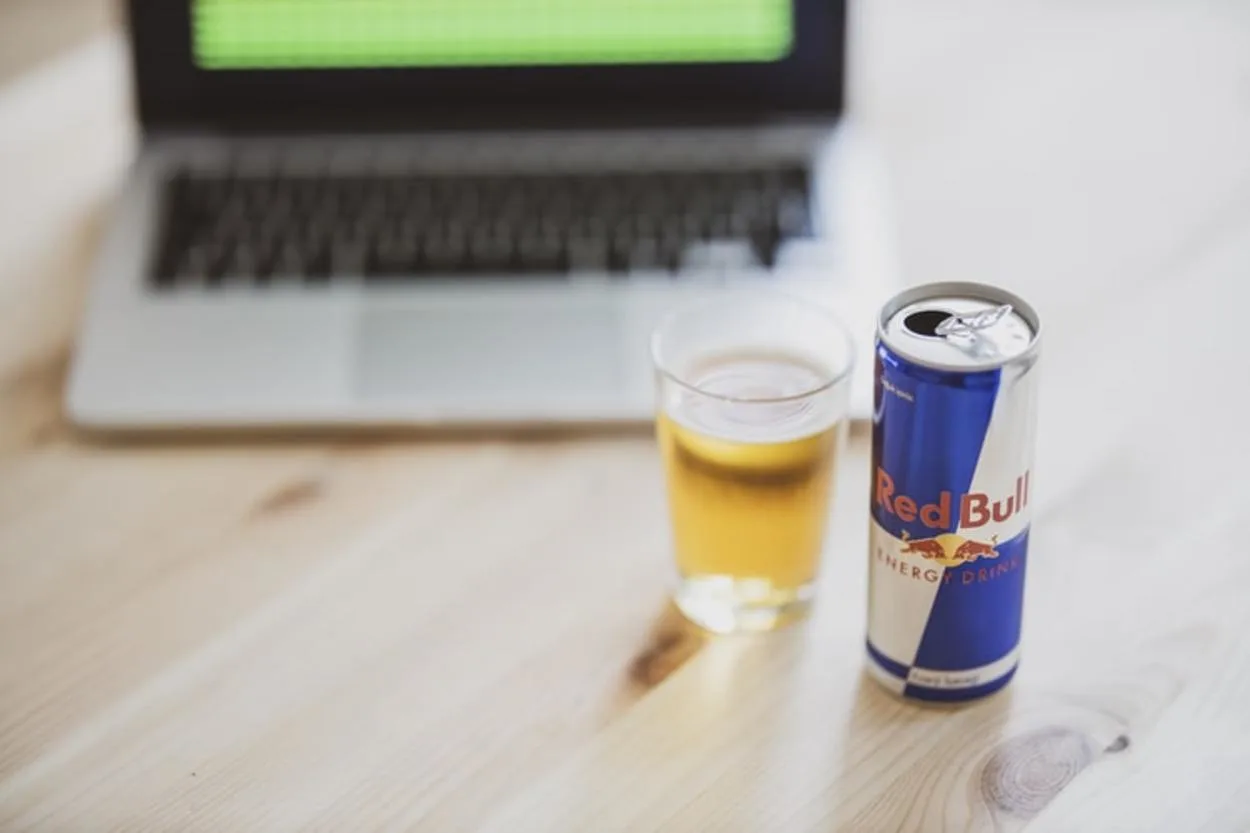Brief Answer: Red Bull can be addictive if you aren’t careful with your consumption.
If you’re just getting to know energy drinks, most of your family and friends will first mention Red Bull.
Among the dozens of existing brands. It’s so popular that even Olympic athletes and race car drivers prefer this brand over any other product.
The major components that make up a can of Red Bull are its caffeine, sugar, B vitamins, and other essential nutrients. Because of this, others want to know what makes it so delectable, or perhaps, addictive.
After all, the usual warnings about energy drinks all talk about how you can get dependent on them if you’re not careful.
Let’s take a closer look at Red Bull and I’ll tell you my tips on how to avoid being addicted!
What Can You Get From Red Bull?
After all these years, Red Bull has maintained their classic formula that has become the standard for energy drinks. A single 8.4 fl. oz can include:
- 110 calories
- 28g carbohydrates
- Taurine
- Carbonated water
- Sucrose and Glucose
- Citric Acid
- Taurine
- Sodium Bicarbonate
- Magnesium Carbonate
- Vitamin B3, B5, B6, and B12
- Natural and artificial Flavors/Colors
As included on the list, these are what B Vitamins can do to your body.
| B VITAMINS | PURPOSE AND EFFECTS ON YOUR BODY |
| B3 – Niacin | primarily required for brain function helps the smooth functioning of the rest of the organs in your body |
| B5 – Pathogenic Acid | significant to carbohydrate and protein metabolism convert food into energy |
| B6 – Pyridoxine | promotes healthy immune system |
| B12 – Cobalmin | speed up the body’s metabolism |
That’s a lot of benefits you can find in just a single can, right? If you need more information about B Vitamins, you can read about them in my other article.
Caffeine Content
For one of the most popular energy drinks to date, Red Bull sure does like to keep it low on the caffeine department. It only has 80mg of caffeine.
Studies have shown how effective it is to consume smaller amounts of caffeine when compared to high levels. When consumed properly, they improve alertness and reaction time with little to no withdrawal symptoms in the process.
Other effects include heightened focus, better & faster decision-making processes, as well as better cognitive function.
It’s also important to note that caffeine is an antioxidant. Thus, it lessens the risks of certain cancers and cardiovascular diseases.
Compared to other energy drink brands I’ve encountered, Red Bull’s caffeine is on the lower end of the spectrum. This means you won’t have to worry much about side effects, but still, best to keep to one or two cans a day only!
Sugar Content
Sugar is a staple for energy drinks, enhancing their flavors and even contributing to the energy boost you feel. However, excessive consumption can lead to side effects like diabetes, cardiovascular diseases, and anxiety.
Unfortunately, Red Bull contains a whopping 27g of sugar. This is too much when you consider that the American Health Association has issued a recommended maximum daily intake of 25 grams for women and 36 grams for men.
I honestly think that Red Bull’s weakness is the sweetness it carries in every can. This is why it’s always helpful to regulate how many cans you’ll drink throughout the day.
Other energy drink brands have gone the sugar-free route, and they may be better if you’re trying to watch your sugar intake.

When is the Best Time to Drink Red Bull?
Research confirmed that the best times to drink Red Bull are during the morning and afternoon.
However, based on my own experience, it works best in the morning because you can drink it right before a workout or your morning commute.
If you were to drink it during the night, you risk insomnia and lethargy. You’d be up at odd hours and this can ruin your body clock.
Should You Drink Red Bull Every Day?
While you technically can, I personally think that Red Bull shouldn’t be consumed daily.
While the caffeine content won’t be much of a problem as long as you don’t consume past the recommended intake amount, the sugar levels may threaten your overall health.
As previously mentioned, excessive sugar consumption can have dangerous side effects like weight gain or diabetes. Too many sweets can also cause hypoglycemia or, simply, a sugar crash.
Once your body’s blood sugar levels drop to or below 70 milligrams per deciliter (mg/dl), it may result in seizures, brain damage, and even death if not treated properly.
What Makes Red Bull ‘Addictive’?
Like many energy drinks you can find on the market, the caffeine and sugar content of Red Bull can be addictive if consumed excessively.
You might have an addiction to energy drinks if you are experiencing symptoms that are associated with the mind and nervous system function, such as:
- Strong cravings
- Caffeine crashes or withdrawals
- Difficulty in controlling your Red Bull intake
How do you beat Red Bull addiction?
Dependency on energy drinks to feel more focused and energized leads to addiction. A significant number of avid caffeine drinkers experience this—particularly Red Bull fans.
Here’s how one can address their Red Bull addiction to shift back to a healthier lifestyle:
- Understand your addiction and seek medical help if necessary. Talk to your doctor about it.
- Try reflecting on your current lifestyle and have a change of phase or environment.
- Getting enough rest and sleep and having a healthier and balanced diet can improve your energy levels and overall health.
- If the addiction is out of your control, you can try to find a support group or seek professional help.
Energy Drink Alternatives for Red Bull
Here are a few energy drink recommendations I have for you!
C4 Energy
Are you looking for an excellent 16 fl. oz energy drink? You can get yourself a can of C4 Energy.
This glorious blend is sugar-free and provides lots of vitamins and minerals, as well as 200mg of caffeine. This drink is well-known for its explosive ability to keep you on your toes for the next couple of hours.
If you want a sugar-free yet hardcore energy drink, then it’s time to give C4 energy a chance!
Aspire
Being a vegan won’t exclude you from experiencing the wonderful benefits of Aspire.
A single 12 fl. oz is certified calorie and sugar-free, omitting any chances of sugar crashes. It also contains vitamins, minerals, and a generous 80mg of caffeine like that of Red Bull!
Thinking for a better and cleaner option has never been this easy before Aspire!
REIZE (10 Out of 10)
We can’t talk about energy drinks without REIZE, my absolute favorite!
This powder energy drink contains essential nutrients such as Taurine, Ginseng, and B vitamins. It also has a moderate 50mg of caffeine, 11 calories, and no sugar, which means that you won’t need to worry about side effects!
I also just love how handy the 4g sachet it comes in. I can take a REIZE packet with me anywhere and whip up a fresh drink in no time at all.
You can get REIZE for just around $1, and you even have the option to get it shipped to your door.
That’s amazing value for your money.
I’d say that you shouldn’t waste these advantages and get yourself a REIZE today!

Other Must-try Brands
Conclusion
Unfortunately, Red Bull and the rest of the energy drinks that contain high amounts of caffeine or sugars can be addictive if you aren’t careful.
I’d have to say that Red Bull’s ingredients are very similar to other brands, and so are their effects. However, the gap in calorie and caffeine count is something you should watch.
Red Bull has a relatively lower caffeine content, but its sugar content leaves is a bit too much in my opinion. So it’s best to keep your intake to a couple of cans per day to avoid side effects! Other than that, nothing should keep you from enjoying its energizing benefits.

